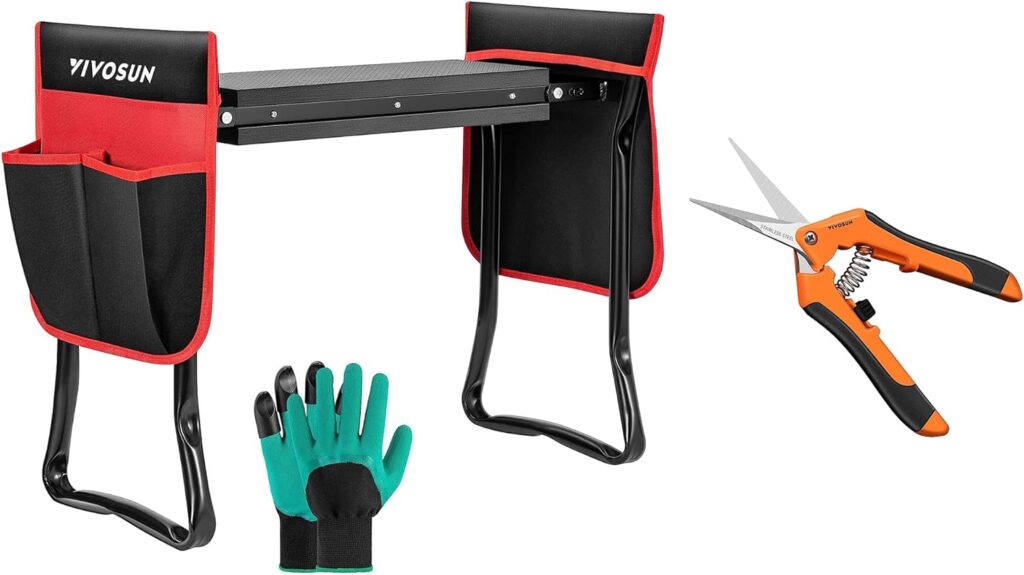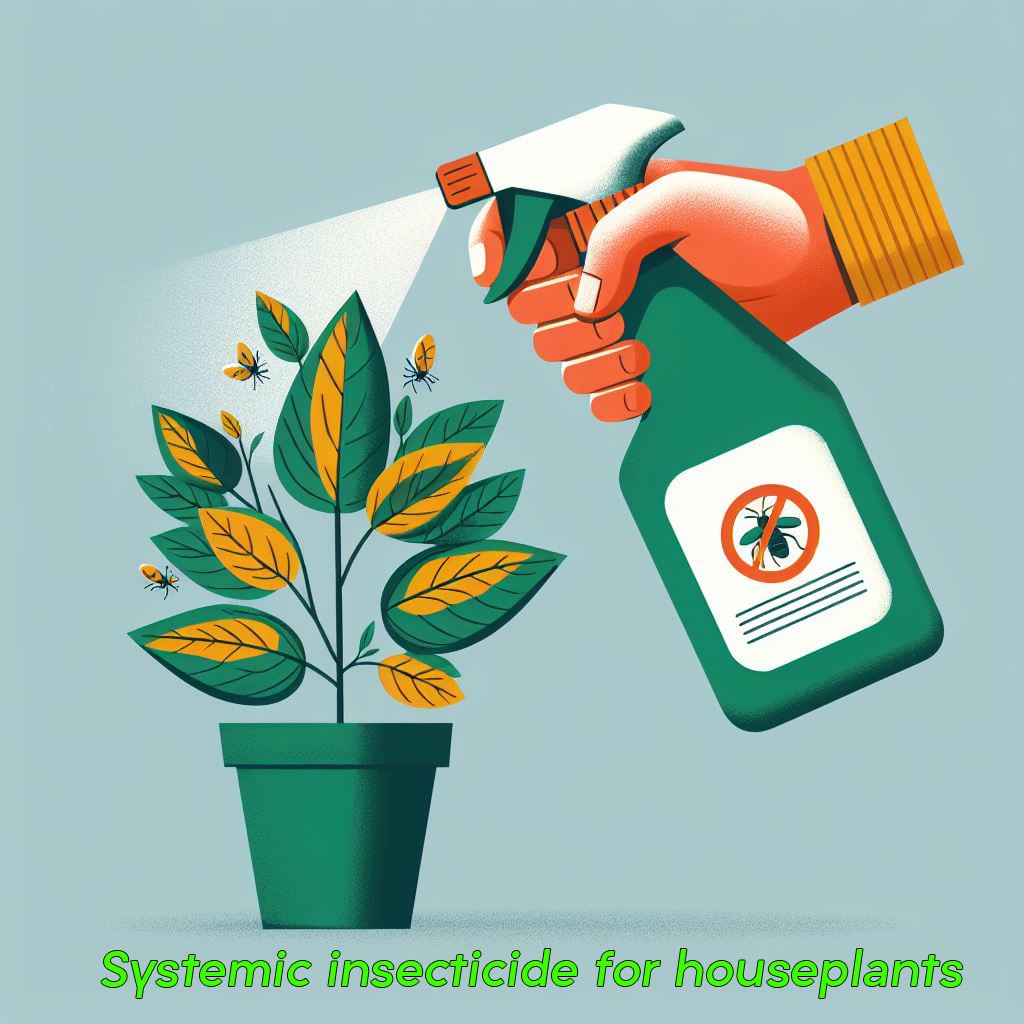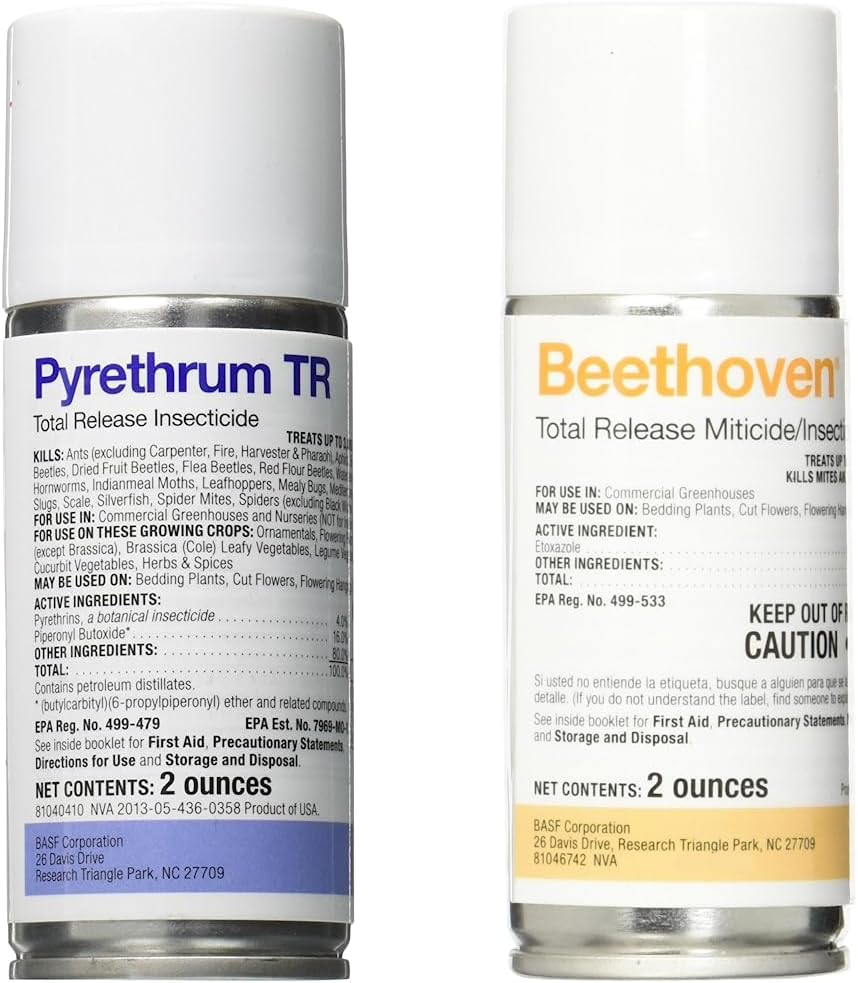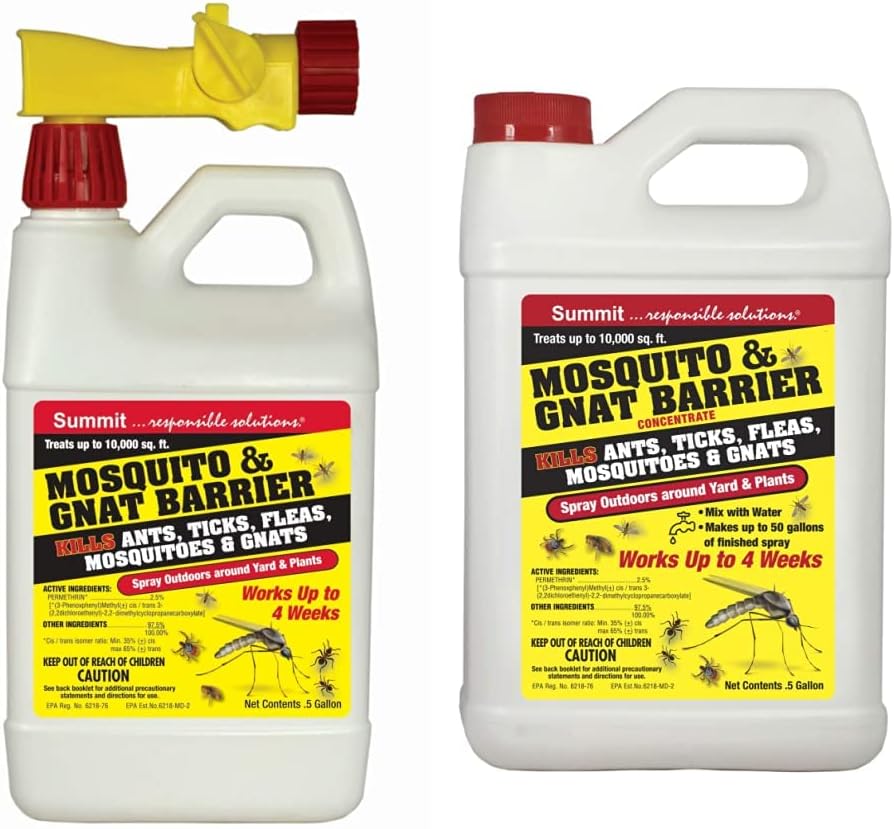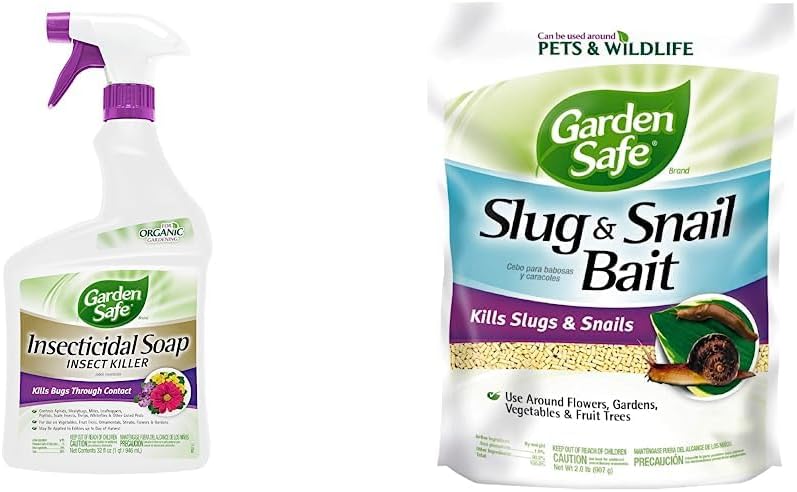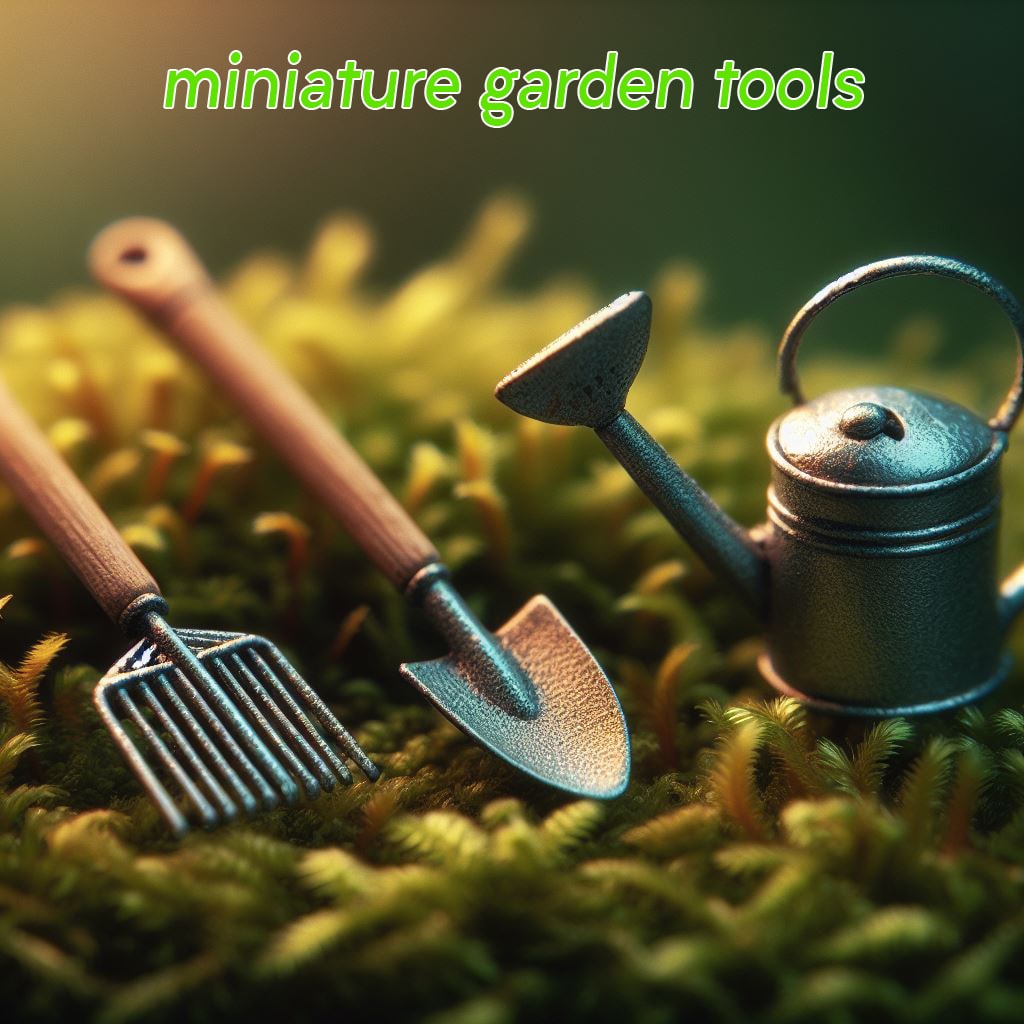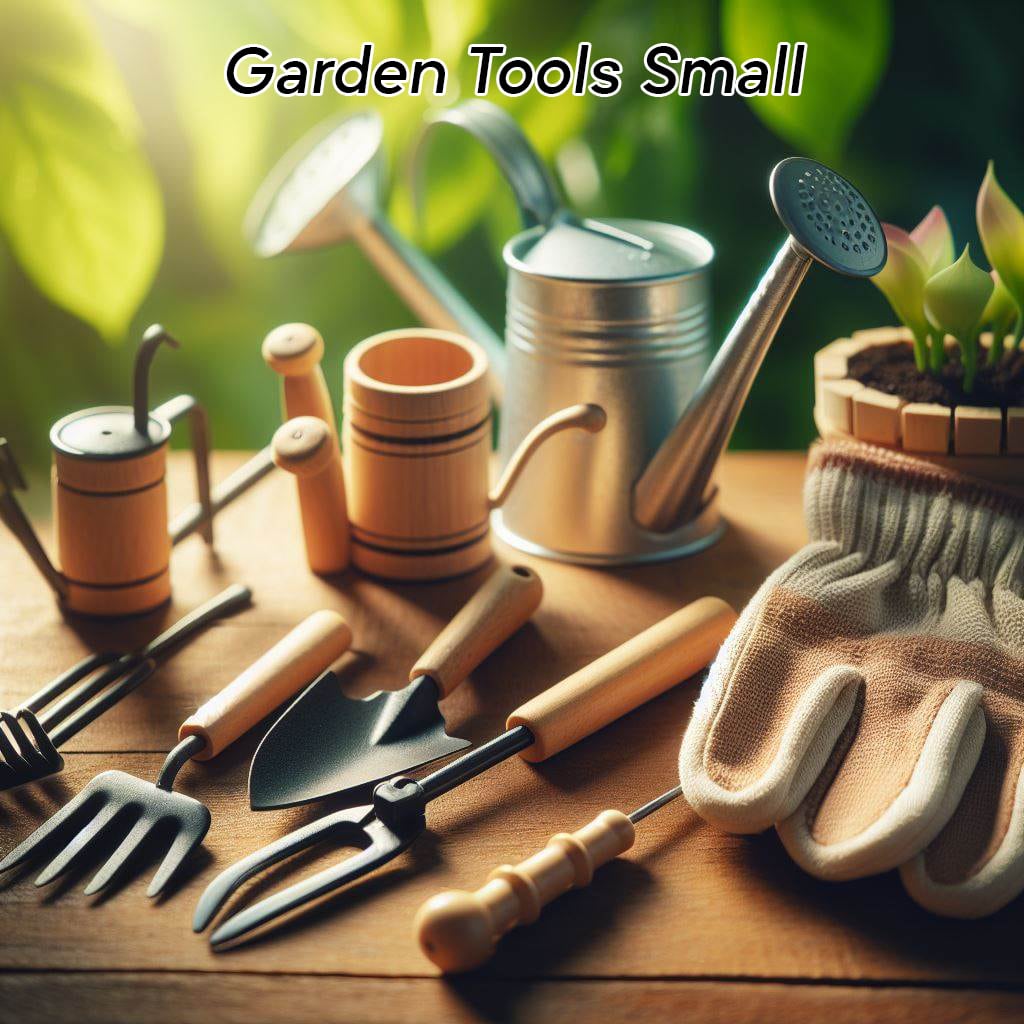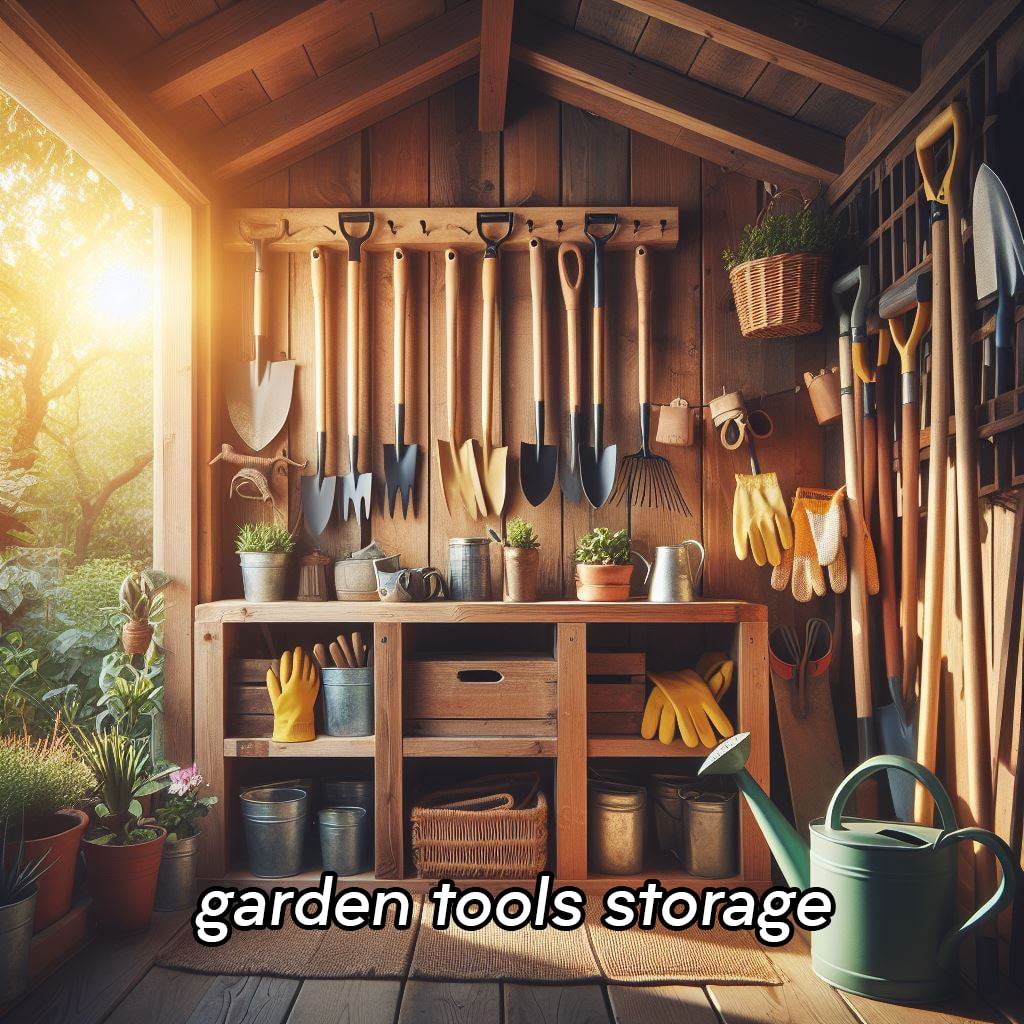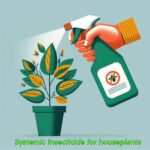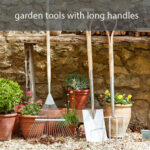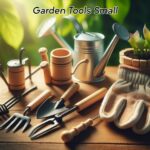
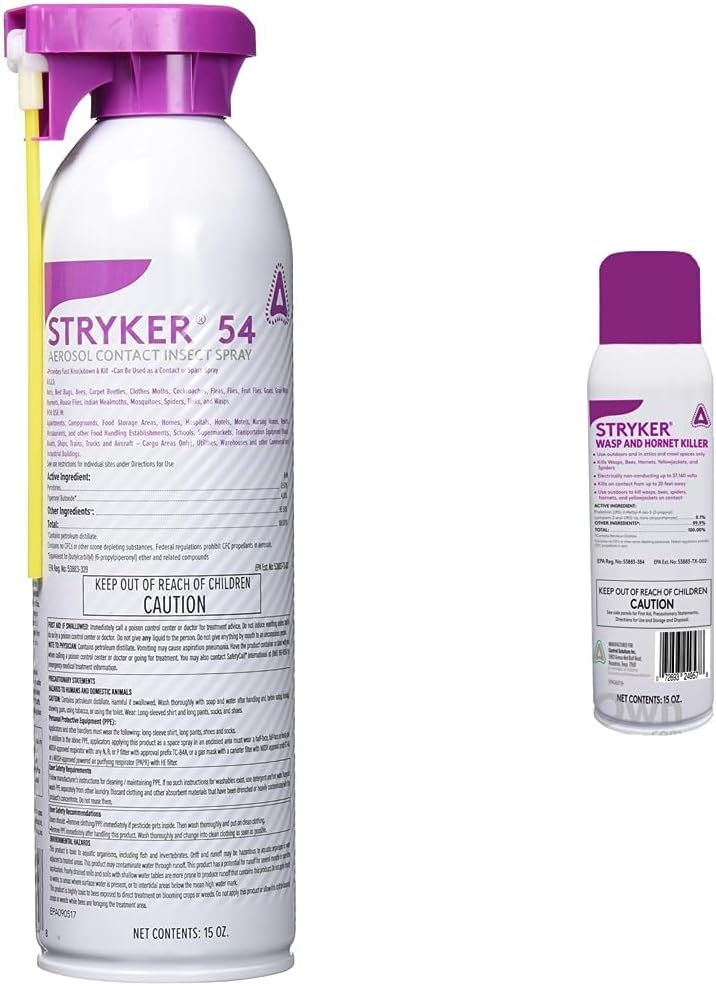
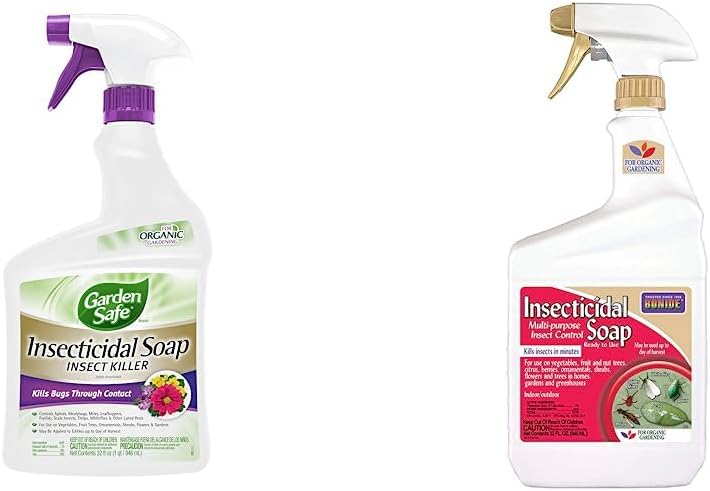
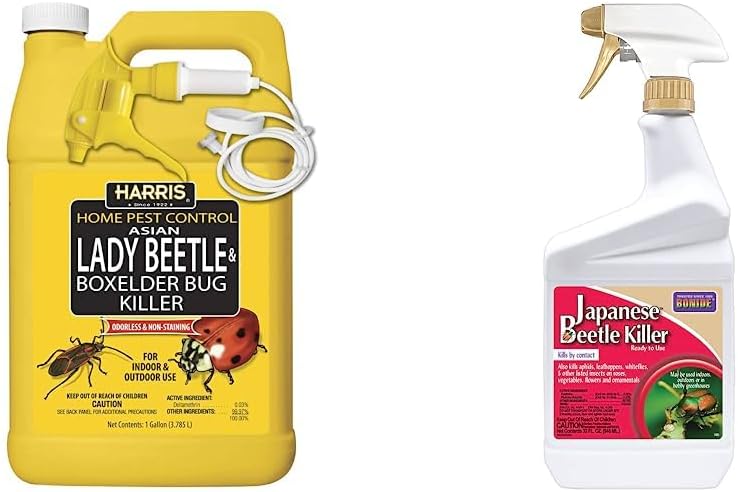
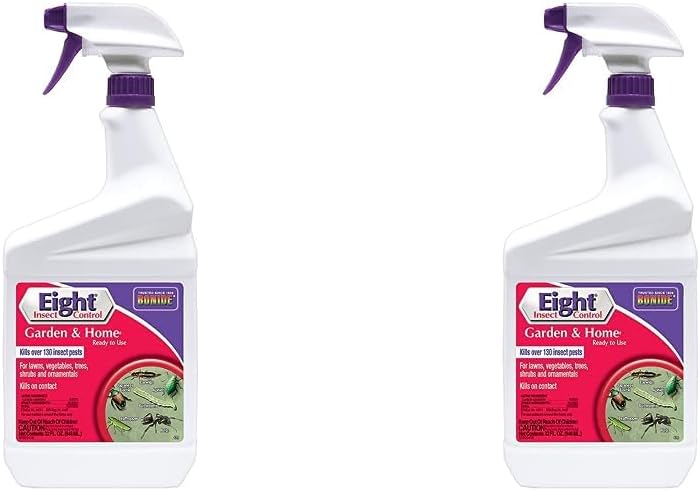
systemic insecticide for houseplants
Bonide’s Systemic Houseplant Insect Control Granules is a low-odor, ready-to-use solution for containerized plants that provides protection against insects for up to 8 weeks. The granular treatment is absorbed into the roots and moves through the plant, killing insects like mealybug, aphids, and scale. It is not intended for use on edible plants like herbs, vegetables, or fruit-bearing ones. The product is conveniently ready-to-use and can be applied evenly to the top of the soil, mixed thoroughly, watered in, and reapplied every 8 weeks as needed. Bonide’s comprehensive houseplant portfolio includes premium potting mixes, specialized fertilizers, and plant food, ensuring healthy growth and vibrant foliage. Their pest control solutions target common indoor pests like spider mites, aphids, and fungus gnats, ensuring pest-free plants. Additionally, their foliar sprays and leaf shines enhance the beauty of houseplants. Since 1926, Bonide has been helping gardeners improve their lawn and garden with easy-to-use products designed for effective results.
Before reading the rest of the article, we must say that if this article is useful to you, the following articles may also be useful for you.
Managing Houseplant Pests in Systemic insecticide for houseplants
Houseplant insect problems often arise from infested plants. To prevent new pest problems, carefully check plants before purchasing and quarantine them in a separate area for a few weeks. Cultural changes can help control insects like fungus gnats. Several insecticides and biological controls are available to control houseplant pests. Plants are susceptible to various insects and mite pests, some causing extensive damage or being nuisances. Non-vigorous plants and those under stress may be more susceptible. Scale insects, such as mealybugs and whiteflies, are often established from infested plants. To prevent infestations, new plants should not be placed with existing ones for at least three weeks.
Methods Used to Control Houseplant Pests
Syringing plants. Many household plant pests can be controlled, at least in part, by washing the plant periodically with a vigorous jet of water. This is particularly effective for spider mites and aphids, which are most readily dislodged.
Cultural changes. Watering affects houseplant pests in a couple of differerent of ways. Excessively moist soil favors the development of problems with fungus gnats. However, plants placed in very hot, dry sites are prone to problems with spider mites.
Handpicking. Larger houseplant insects can be controlled by handpicking. This is especially useful for scale insects and mealybugs. Regularly using small, hand-held vacuums assist in controlling whiteflies.
Trapping. Yellow sticky traps can be useful to reduce the number of insect pests that fly – whiteflies, winged aphids, and fungus gnats. These traps are sold commercially or you can easily make them by cutting bright yellow cardboard and covering it with petroleum jelly or some other sticky material. However, trapping alone will not entirely eliminate problems because much of the population, including the younger stages, remain on or about the plants.
Sanitation. Seriously infested plants are often best discarded because they usually require lengthy and extraordinary efforts to control the pests. They may also serve as a source for infesting other plants. You can use periodic “host-free” intervals to cause insects that survive for short periods without feeding to die out.
Biological controls. Under certain conditions, natural enemies of houseplant pests are effective in reducing the problem to acceptable levels. However, they are relatively difficult to acquire and are usually available only through specialty suppliers.
Alcohol. Sprays of alcohol, or alcohol dabbed onto insects, is well known as a useful control of mealybugs. However, using alcohol on plants may cause injuries such as leaf burn. Carefully test a small part of the plant if you attempt to use this method.
Insecticidal soaps. Insecticidal soaps (potassium salts of fatty acids) are one of the most commonly available houseplant insecticides. These are used as dilute sprays (one to three percent concentration) and can help control many houseplant insects and spider mites. Many liquid hand soaps and dishwashing detergents also have insecticidal effects, although there is potential for plant injury with such treatments. See fact sheet 5.547, Insect Control: Soaps and Detergents for more information.
Horticultural oils. Diluted sprays of oils (petroleum distillates, mineral oils) are some of the most useful insecticides for houseplant pests, capable of controlling scales, young whiteflies and spider mites. These are highly refined oils that primarily act by smothering. See fact sheet 5.569, Insect Control: Horticultural Oils for more information.
Neem. Some houseplant insecticides are derived from seed extracts of the neem plant, a commonly grown tree in many tropical areas. Neem seed contains materials that disrupt insect growth and is useful for control on developing whiteflies and some other insects. Neem seed also contains oils that may be used in a manner similar to other horticultural oils and is sold in products labelled as containing “clarified hydrophobic extracts of neem seed.”
Pyrethrins and pyrethroid insecticides. Pyrethins are a common ingredient in many houseplant and garden insecticides. They are a natural product derived from flowers of a certain (pyrethrum) daisy. Pyrethrins are fast acting, have a very short persistence (a few hours), and low toxicity.
Several “synthetic pyrethrins,” better known as pyrethroids, are also commonly used. These are synthetically manufactured insecticides based on the chemistry of the natural pyrethrins. Some of these pyrethroids, such as resmethrin and sumithrin, are also fast acting and have a short persistence like the natural product. However, other pyrethroids, such as permethrin, cyfluthrin, and bifenthrin, may persist in active form on foliage for several days. Pyrethroids may have differences in their ability to control houseplant pests, such as bifenthrin, which is much more effective than other pyrethroids against spider mites.
Systemic insecticides. Some insecticides, known as “systemic insecticides” have the ability to be absorbed by plants. Those used on houseplants are sold as granules or as stakes. They are applied to the soil for the roots to absorb.
Bacillus thuringiensis var. israelensis (H-14 strain). A naturally occurring soil bacteria, Bacillus thuringiensis, has the ability to control many insects. It is a commonly used microbial insecticide. Different strains of this bacteria occur which may have different effects on insects. For example, one strain (“kurstaki”) is commonly sold to control caterpillars on vegetables and ornamental plants. Another strain, “israelensis” or “H-14,” can control certain larvae of gnats, blackflies, and mosquitoes. It is sold under the trade names Gnatrol and Knock-Out Gnats to control fungus gnat larvae in houseplants.
Notes on using pesticides
When using pesticides on houseplants, follow these precautions to avoid exposure and plant injury. Use only labeled pesticides, take plants outdoors before spraying, avoid applying aerosol sprays closer than 18 inches, and avoid treating plants with environmental stresses like temperature extremes or drought. If using granules or stakes containing DiSyston, use extra care when watering, as excess water may carry the toxic insecticide. Most label use directions emphasize this precaution. Avoid treating plants that suffer from environmental stresses to minimize potential plant injury.
Common Houseplant Pests
Greenhouse Whitefly

Mealybugs

Spider Mites

Other Mites

Soft Scales
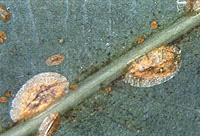
Armored Scales

Aphids
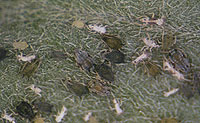
Thrips

Fungus Gnats

Other Flies

Springtails

Conclusion
Systemic insecticides are harmful chemicals used to attack herbivorous insects, including bees and other beneficial insects. These chemicals are designed to permeate plants from within and can render some or all of a plant toxic to insects that feed on plant tissue. They are commonly used to suppress herbivorous sucking or chewing insects like aphids, caterpillars, and root nematodes.
Systemic insecticides, such as neonicotinoids, are known for their risk due to their high toxicity to bees and persistence. However, nearly 40 other systemic insecticides are in use in the U.S., including many newly approved chemicals not as commonly known.
Systemic insecticides contaminate plant tissues from the inside, potentially reaching pollen, nectar, leaves, and stems. These chemicals can be consumed not just by pests but also by bees, larval (juvenile) and adult butterflies, and the many beneficial predators and parasitoids that eat pollen or nectar as adults. Many systemic insecticides are toxic enough to kill adult or larval honey bees, bumble bees, and/or solitary bees at very low concentrations.
Researchers have documented effects including impaired reproductive capacity, flight, navigation, learning, immune response, and more in bees exposed to various systemic insecticides at concentrations frequently detected in crops or other treated plants. These subtle yet harmful effects, often termed “sublethal,” can render insects more vulnerable to disease and other stressors, weakening populations over time.
When toxicity tests don’t result in significant mortality to honey bees, people often assume a chemical is safe for all bees and other pollinators, such as butterflies and moths. However, studies show some bees, butterflies, and moths are even more sensitive to insecticides than honey bees, the standard test species.
Furthermore, systemic insecticides may migrate into plant tissue over time, with some being detected inside plants years after application. Therefore, use of systemic insecticides should be carefully considered and managed to protect ecosystems and bees.
